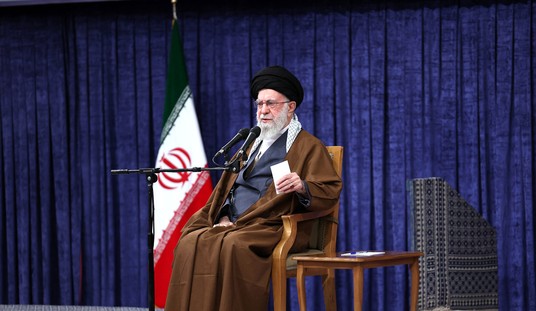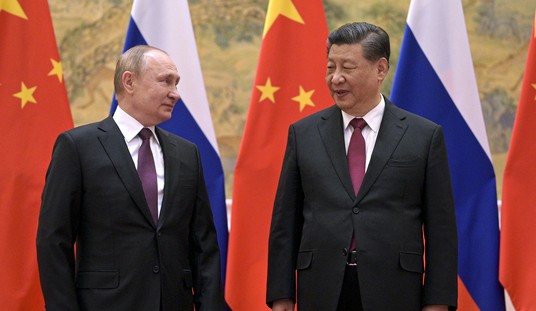Recently, Republicans have had the spotlight put on their differing visions of how to approach foreign policy in an increasingly dangerous world. It is not a new division; it has existed throughout the 20th century. This issue is critical not just for Republicans, but for the country at large.
I’m referring primarily to the recent debate over foreign policy initiated by Governor Rick Perry of Texas. Perry has been in the news due to his actions on the border crisis and his meeting with Barack Obama, a meeting which the president felt he had to attend due to flak he was receiving over his refusal to actually visit the border. Possibly as a prelude to a presidential run in 2016, Perry has now decided to challenge Rand Paul and those who agree with him over what Perry maintains are dangerous isolationist tendencies.
Writing in last Saturday’s Washington Post, the governor accused Rand Paul of wanting America to pull up the drawbridge, which would amount to “ignoring the profound threat that the group now calling itself the Islamic State poses to the United States and the world.” In both Syria and Iraq, Perry points out that “the world is confronting an even more radicalized version of Islamic extremism than al-Qaeda.”
Paul, on the other hand, maintains that Americans need a new foreign policy approach, one in which the U.S. stays out of Syria and Iraq completely, and should not even contemplate air strikes to hem in Assad’s forces, even though that intervention would not include boots on the ground. In a recent Wall Street Journal op-ed, Paul claims that he is the rightful heir to the foreign policy espoused by Ronald Reagan, and that Reagan would have adopted the same policies that he is now advocating.
Perry finds these claims completely wrongheaded, and argues that Ronald Reagan was anything but an isolationist. Reagan saw the Soviet Union “as an existential threat to our national security and Western values,” and Perry believes it was Reagan’s engagement and tough policies that led to the final collapse of the Soviet Union. While it is true that Reagan ended the Cold War without going to war with Russia, he increased the U.S. defense budget and backed development of what the opposition called “Star Wars,” thus bleeding the Soviet system dry in their race to keep up. Reagan’s move prevented their state command economy from functioning at even a minimal level. Reagan did not just rely, as Paul writes, on “strong diplomacy and moral leadership.”
At the time, many on the left and the right argued that Reagan was wrong to treat the Soviets as adversaries, and that taking a tough stance towards them would only push them into war. Perry’s analogy seems to apply; many who oppose serious engagement with our enemies today use the trope that a tough policy means that “the neocons want a war,” when in fact, an engaged U.S. policy would prevent a war that otherwise might indeed take place. As Perry puts it, “Paul’s brand of isolationism … would compound the threat of terrorism even further.”
Paul did not wait long to answer the governor, writing his own op-ed in the pages of Politico. Calling Perry’s arguments “a fictionalized account of my foreign policy” that mischaracterized his real views, he wondered “if he’s even really read any of my policy papers.” Paul tries to make the case that he is no isolationist, preferring the term non-interventionist to describe his views. However, the difference between the two is slippery. The pre-World War II group that was called isolationists by those wanting the U.S. to take action against Hitler also complained of the same thing. They were non-interventionists, they argued, and not isolationists, because they wanted a “Fortress America” that would make U.S. defenses impregnable.
Today, Paul says, he now supports assistance to the Iraqi government including arms and intelligence, as well as technology to hinder ISIS. He does not want U.S. aid and arms to go to Islamic rebels in Syria, who he argues are allied with ISIS. This raises the question of whether or not there are actually moderate anti-jihadist rebels in Syria who are not allied with the jihadists, whom the Obama administration argues they are trying to support. At this point, I doubt that any of these anti-Assad jihadists can become our allies, because even if there are moderates, as a whole the military units are controlled by Islamists. Rand Paul, however, does not address the question at all.
Of course, Perry also opposes sending U.S. troops back to Iraq. No one advocates that, although some do argue for a small group to protect the government and to continue the training of anti-ISIS forces. Setting up a strawman and sounding like John Kerry during the Vietnam War in his testimony before Congress, Paul asks: “How many Americans should send their sons or daughters to die for a foreign country — a nation the Iraqis won’t defend for themselves?” And to call someone an isolationist is simply a smear — “perhaps it’s time we finally retire that pejorative.”
Is it? In the current issue of the Weekly Standard, AEI visiting fellow David Adesnik dissects Ron Paul’s foreign policy reading list that is on Paul’s website. He finds that it “consists entirely of works that blame the United States for the rise of Islamic extremism while offering solutions that verge on isolationism.” He proves as well that many of Paul’s own speeches are unreservedly isolationist, and that his arguments mirror precisely the foreign policy stance of those on the far Left.
If some unfairly label their opponents “isolationist” and do not address the actual arguments they make, that is wrong. But it is also wrong for Paul to argue that those who want some kind of firm U.S. response to Islamic extremism are advocates of “sending our sons and daughters to war.”
Not too long ago, Barack Obama announced that al-Qaeda is “diminished” and that “the tide of war is receding.” Those statements have been proven false. Can we really inoculate ourselves from those bent on destroying us? If you as an American believe our nation is really not at war, and that Iran has only peaceful intentions and does not want a nuclear weapon, or that ISIS and al-Qaeda are not a threat to our security, you are living in an illusory world.
Rand Paul may indeed gain popularity with his comfortable isolationist position. (Sorry, Senator: I know you consider it a pejorative, but it’s accurate.) If the Republicans nominate him as their presidential candidate, it will be a disaster in the making. They will be giving up a traditionally strong argument for their party — that Republicans will protect our national security. They will be aligning themselves with the left-wing of the already leftist Democrats, where peace at any price has been, for a long time, the popular policy to espouse.
So thank you Governor Perry, for daring to make the case for a strong foreign policy early in the day before the Republican primaries, giving Republican voters time to think over these important issues before they cast a vote for Rand Paul.









Join the conversation as a VIP Member